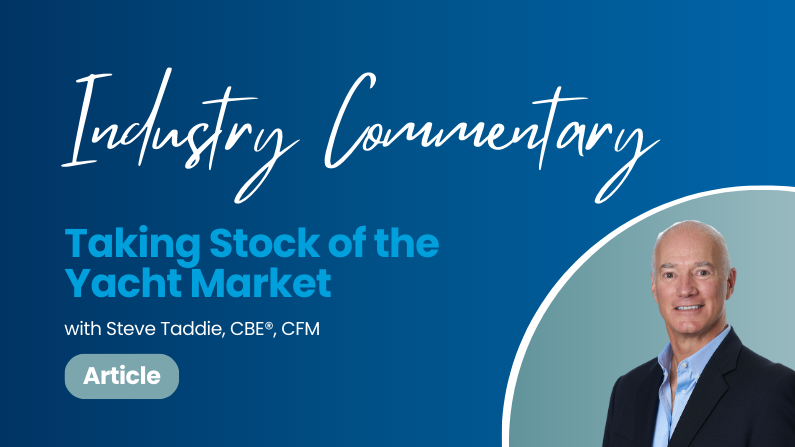HoyleCohen’s Chief Economist, Steve Taddie contributed to this recent article featured in Boat International, along with superyacht industry insiders and other global wealth experts, in which they discuss how the challenges facing the world economy are affecting buyers and whether the big boat market has a solid basis that will carry it through the rough waters to come. While we are all not necessarily in the market for a new yacht the commentary on the world economy and the buying attitudes of the ultra-rich are an interesting read. Some highlights below:
“Inflation and continued supply chain bottlenecks have impacted the yacht building industry, with builders and brokers weighing up how much of rising costs to pass on to clients. Yet the picture is far from one of doom and gloom. The market is still strong; the bull market of 2021 to 2022 was always unlikely to be sustained. As ever, it is important to bear in mind that superyacht buyers are ultra-high-net-worth individuals (UHNWIs). They are generally more resilient to high interest rates than less affluent households, and more accommodated to seeing significant fluctuations in their net worth.”
“Stephen Taddie, Chief Economist and managing partner at wealth management and financial advisory firm HoyleCohen, says that investment markets, important for UHNW wealth, have been mixed over the past two years, with stocks recovering from pandemic lows but interest rate increases over the past 18 months hammering bond prices and having a negative impact on real estate values. UHNWI spending is changing – potentially in the yachting market’s favor. “The feared ‘richcession’ is not playing out in theatres everywhere. The rich have never been wealthier, and their spending is still in high gear,” says Taddie. “But the direction of that spending has shifted from high-end goods to high-end services. Most have ‘spent up’ demand for typical high-end items, but still have ‘pent up’ demand
for high-end services and ultra high-end goods.”
“With volatility meaning that large investment portfolios see substantial swings in value, some UHNWIs will choose to spend large sums on individual experiences, rather than seeing continued negative return on portfolio investments, Taddie adds. “Smart, ultra-rich investors are typically ultralong-term investors, as it has been hammered into their heads that reactionary moves with respect to investments are usually counterproductive,” Taddie says. “Without disturbing current investments – heeding that age-old wisdom – shifting the destination of incoming cash flow towards once-in-a-lifetime or bucket-list experiences is easy. With money markets sporting five percent yields, the extra interest earnings can go towards an extra day of fun.”
Disclaimer: HoyleCohen is a fiduciary acting on behalf of our clients. We are a fee-based investment advisor and do not receive commissions for any investment strategies or products that may be discussed. This information is intended for informational purposes only. No decisions regarding investment strategies should be made based solely on this information and it should not be interpreted as investment advice. Any investment decisions should be discussed with your Advisor. Finally, all investments carry the risk of loss, including the permanent loss of principal and past performance is not a guarantee of future results.

